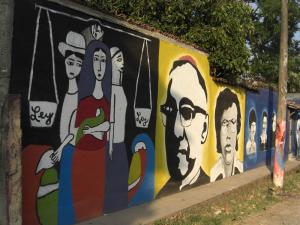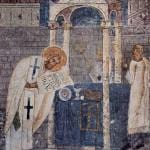
Liberation Theology was never condemned. Liberation Theology is not monolithic. Different Liberation Theologians tackle the questions raised by Liberation Theology, questions on the status of the poor and oppressed of the world, and offer different answers to those questions. Sometimes those answers are good. Sometimes those answers are bad. Some Liberation Theologians are good. Some Liberation Theologians are bad. It is the same as it has always been in history. Theology, theological styles, are diverse. Those following a particular style can use it properly and promote authentic Catholic teaching, while others can find themselves going astray, and error in one way or another. Scholasticism gave us many great saints, but it also gave us many great heretics: the condemnation of those heretics does not mean the scholastic enterprise itself was condemned (even if some saints, like St. Bernard of Clairvaux, questioned that enterprise). The scholastic enterprise produced good and bad, and so, in modern times, Liberation Theology, as style and way of doing theology, has produced good and bad.
What many people have been led to believe served as a condemnation of Liberation Theology is the text produced by the Congregation for the Doctrine of Faith (CDF) entitled, “Instruction on Certain Aspects of the ‘Theologies of Liberation.’” Nonetheless, what the CDF objected to was not Liberation Theology as a whole, but what some Liberation Theologians said in their writings. Indeed, at the opening of the document, the questions and style of Liberation Theologian was openly promoted:
The Gospel of Jesus Christ is a message of freedom and a force for liberation. In recent years, this essential truth has become the object of reflection for theologians, with a new kind of attention which is itself full of promise.[1]
The CDF acknowledged that liberation is an essential aspect of the Gospel teaching, and Liberation Theology is full of promise because of the way it engaged that aspect of the faith. Those who would reject such a foundation for theology or theological research will not find the CDF agreeing with them. Thus, the CDF continued:
Liberation is first and foremost liberation from the radical slavery of sin. Its end and its goal is the freedom of the children of God, which is the gift of grace. As a logical consequence, it calls for freedom from many different kinds of slavery in the cultural, economic, social, and political spheres, all of which derive ultimately from sin, and so often prevent people from living in a manner befitting their dignity. To discern clearly what is fundamental to this issue and what is a by-product of it, is an indispensable condition for any theological reflection on liberation. [2]
Sin, the structures of sin, are what bind us and enslave us. To be free in Christ is to be freed from the bondage of sin, and the structures of sin placed in the world. To promote true Christian freedom, we must overturn the structures of sin. And at the forefront of this is the acknowledgment that the poor and oppressed of the world face and experience the full force of the structures of sin, making them the ones who are most vulnerable to and most harmed by those structures. This is why we must take the poor and oppressed to heart. When we confront the structures of sin, we must be concerned with those harmed by them the most, and work to help them and heal them from all the abuse which they have experienced. Those who are harmed more are in more need, and so this is why they are to be given preference, a preference which the Church teaches. Thus, when warning against poor ways of engaging the preferential option for the poor, the CDF nonetheless confirmed the principle and said we must hold on to it as Christians:
This warning should in no way be interpreted as a disavowal of all those who want to respond generously and with an authentic evangelical spirit to the “preferential option for the poor.” It should not at all serve as an excuse for those who maintain the attitude of neutrality and indifference in the face of the tragic and pressing problems of human misery and injustice. It is, on the contrary, dictated by the certitude that the serious ideological deviations which it points out tends inevitably to betray the cause of the poor. More than ever, it is important that numerous Christians, whose faith is clear and who are committed to live the Christian life in its fullness, become involved in the struggle for justice, freedom, and human dignity because of their love for their disinherited, oppressed, and persecuted brothers and sisters. More than ever, the Church intends to condemn abuses, injustices, and attacks against freedom, wherever they occur and whoever commits them. She intends to struggle, by her own means, for the defense and advancement of the rights of mankind, especially of the poor. [3]
The introduction to the Instruction therefore, makes it clear that the principles of Liberation Theology are authentic principles of the Christian Faith and must not be disregarded. Indeed, the CDF pointed out the scandal of social injustice found in the inequality between the rich and the poor must not be tolerated:
The scandal of the shocking inequality between the rich and poor – whether between rich and poor countries, or between social classes in a single nation – is no longer tolerated. On one hand, people have attained an unheard of abundance which is given to waste, while on the other hand so many live in such poverty, deprived of the basic necessities, that one is hardly able even to count the victims of malnutrition. [4]
And, after discussing a variety of questions based upon some theologians, the CDF made it clear that these objections must not be used in order to justify neglect for the principles behind Liberation Theology, that is, their words must not be used in order to justify those abuses and let them continue to be spread:
The warning against the serious deviations of some “theologies of liberation” must not be taken as some kind of approval, even indirect, of those who keep the poor in misery, who profit from that misery, who notice it while doing nothing about it, or who remain indifferent to it. The Church, guided by the Gospel of mercy and by the love for mankind, hears the cry for justice and intends to respond to it with all her might. [5]
The CDF made it clear that what they were concerned with were “some” theologies of liberation, not Liberation Theology. And to make sure this was clear, they stated the basic principles of Liberation Theology and promoted them throughout their presentation. Therefore, far from condemning Liberation Theology, we find the CDF affirming it. This is why what was addressed was “certain aspects” of Theologies (in plural) of Liberation instead of Liberation Theology. What was questioned and criticized by the CDF was far less connected with the whole enterprise of Liberation Theology than what Bishop Étienne Tempier condemned concerning scholasticism in 1277. Liberation Theology, like scholasticism, is a style of doing theology. It is based upon certain basic principles which come from the Gospel and the message of Christ. Those principles, coming from the Gospel, cannot be and must not be seen as faulty – which is why the CDF affirmed them before examining various ways people have engaged them. Those who have used this document to suggest Liberation Theology has been condemned as a whole have misread the document and ignore that its concern is with “some” theologians and theologies which have come out as a result of those principles. Thus, those who will condemn all such embrace of those principles ignore the CDF’s document, for it is clear, they would find their position is one which has been condemned in it, but not Liberation Theology itself.
[1] Congregation for the Doctrine of Faith, ‘Instruction on Certain Aspects of the ‘Theologies of Liberation.’
[2] Congregation for the Doctrine of Faith, ‘Instruction on Certain Aspects of the ‘Theologies of Liberation.’
[3] Congregation for the Doctrine of Faith, ‘Instruction on Certain Aspects of the ‘Theologies of Liberation.’
[4] Congregation for the Doctrine of Faith, ‘Instruction on Certain Aspects of the ‘Theologies of Liberation.’
[5] Congregation for the Doctrine of Faith, ‘Instruction on Certain Aspects of the ‘Theologies of Liberation.’
Stay in touch! Like A Little Bit of Nothing on Facebook.
If you liked what you read, please consider sharing it with your friends and family!












